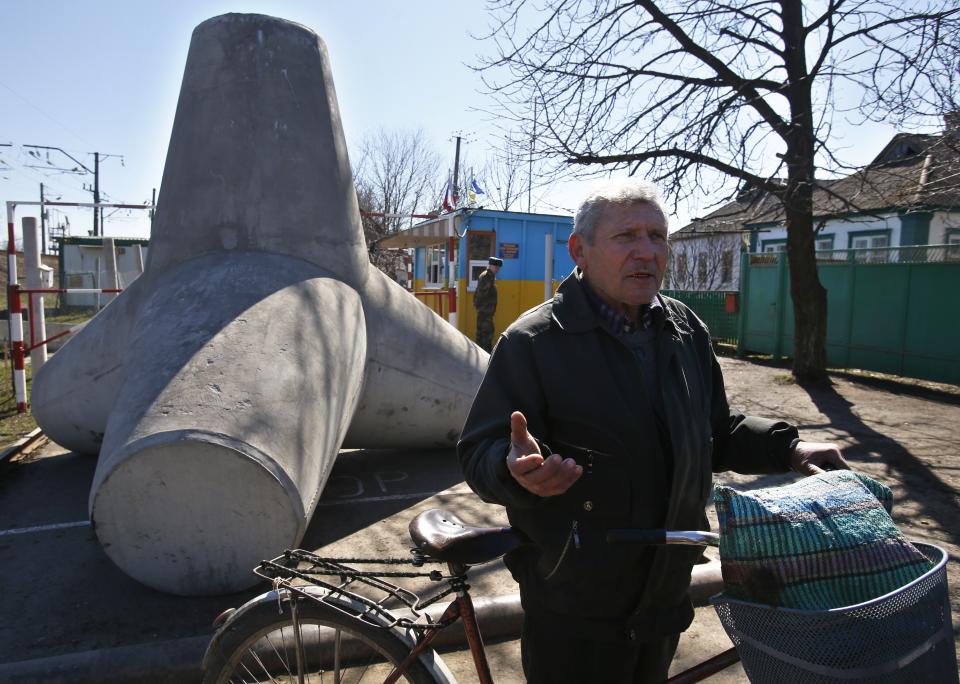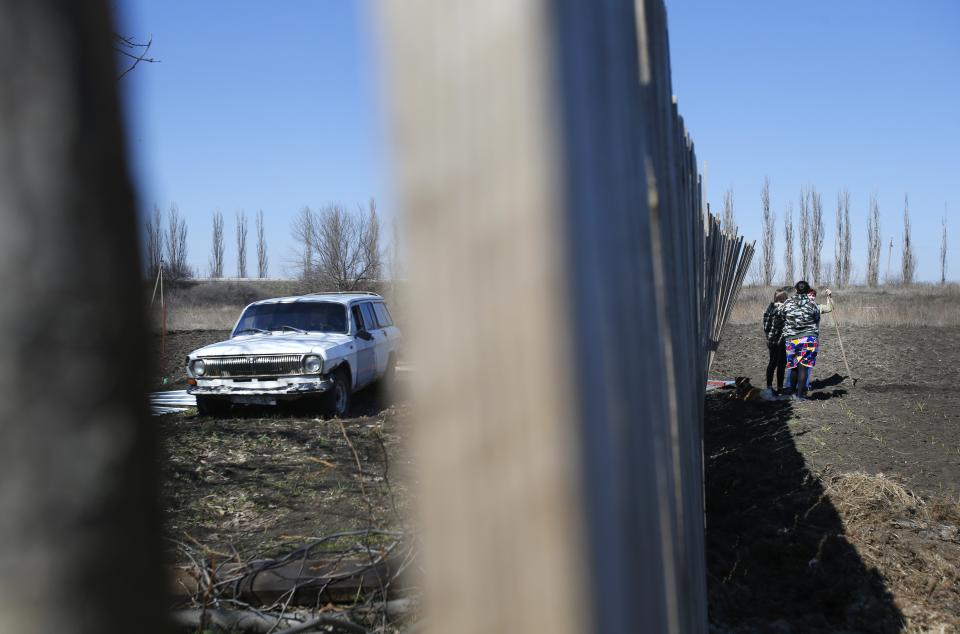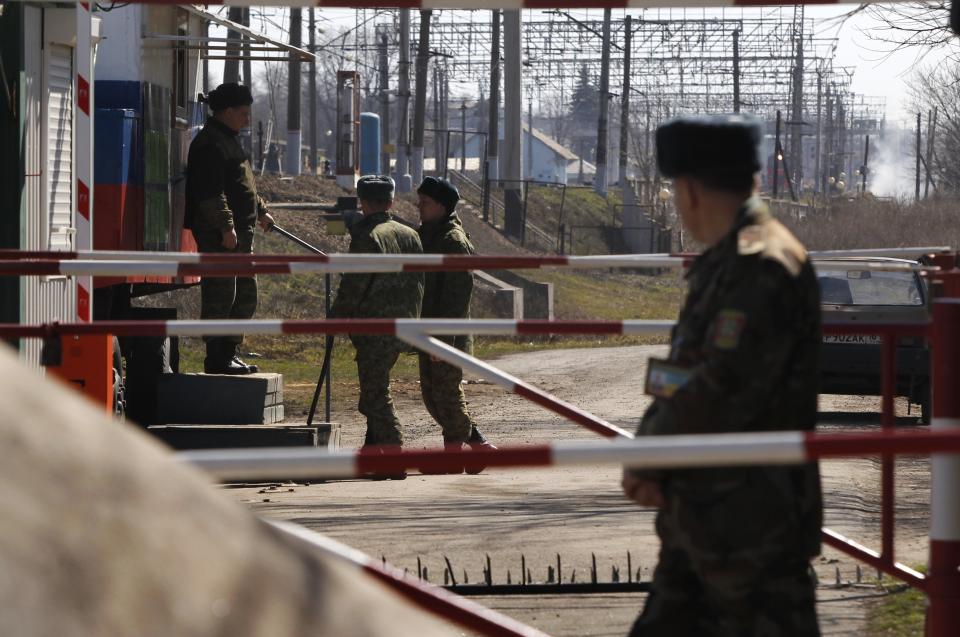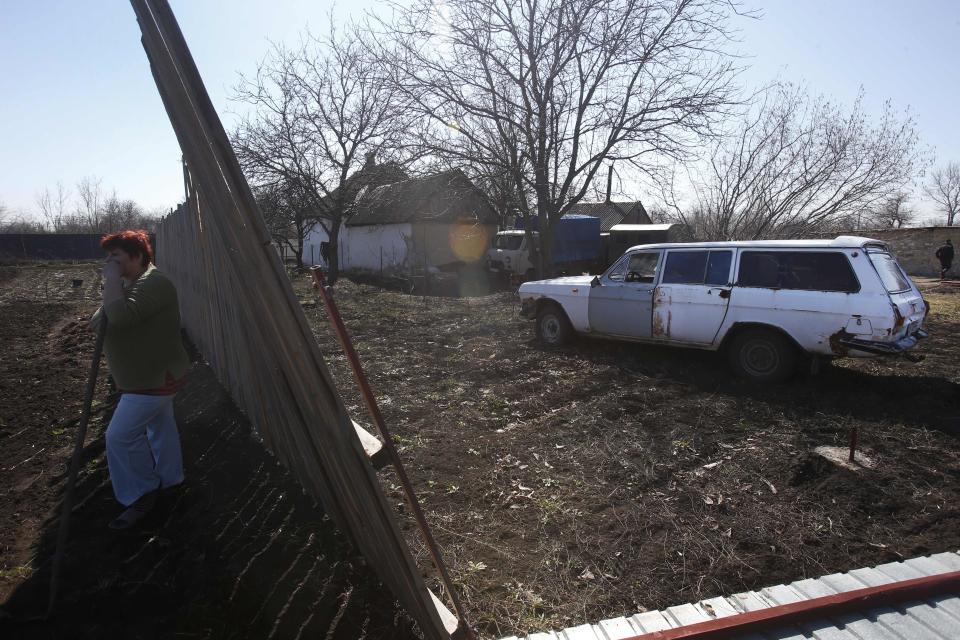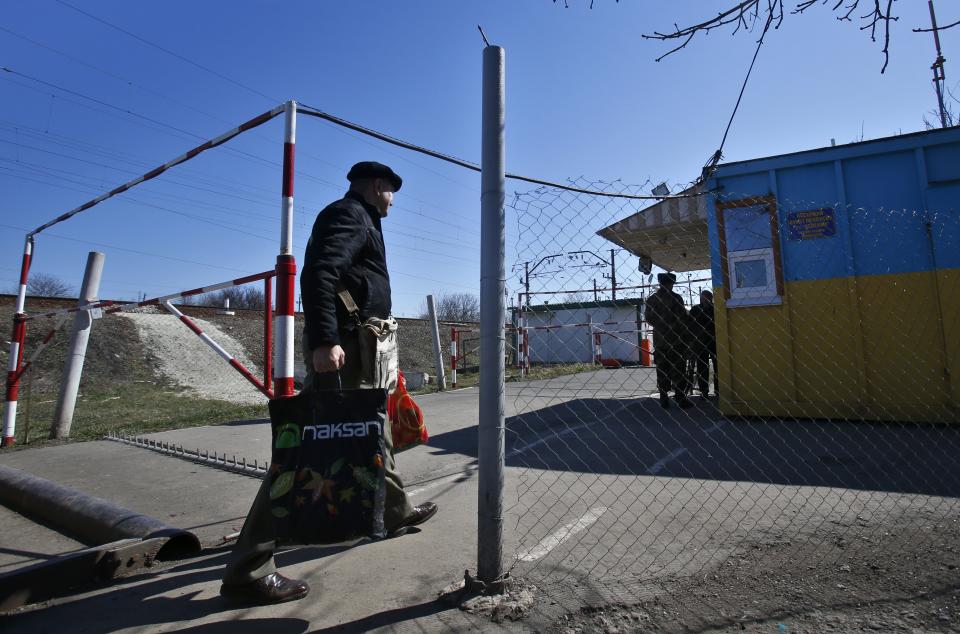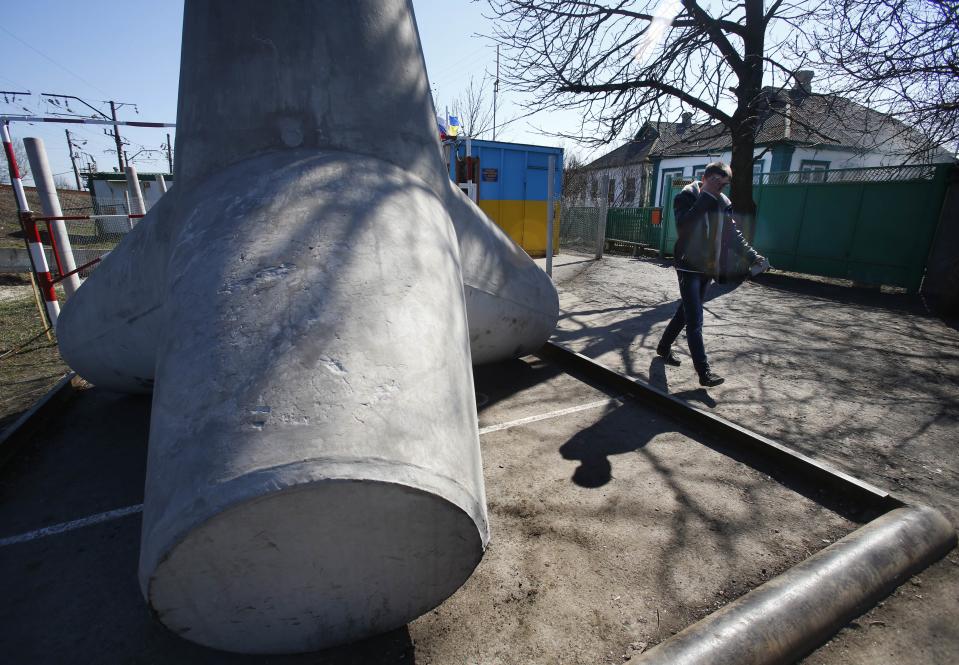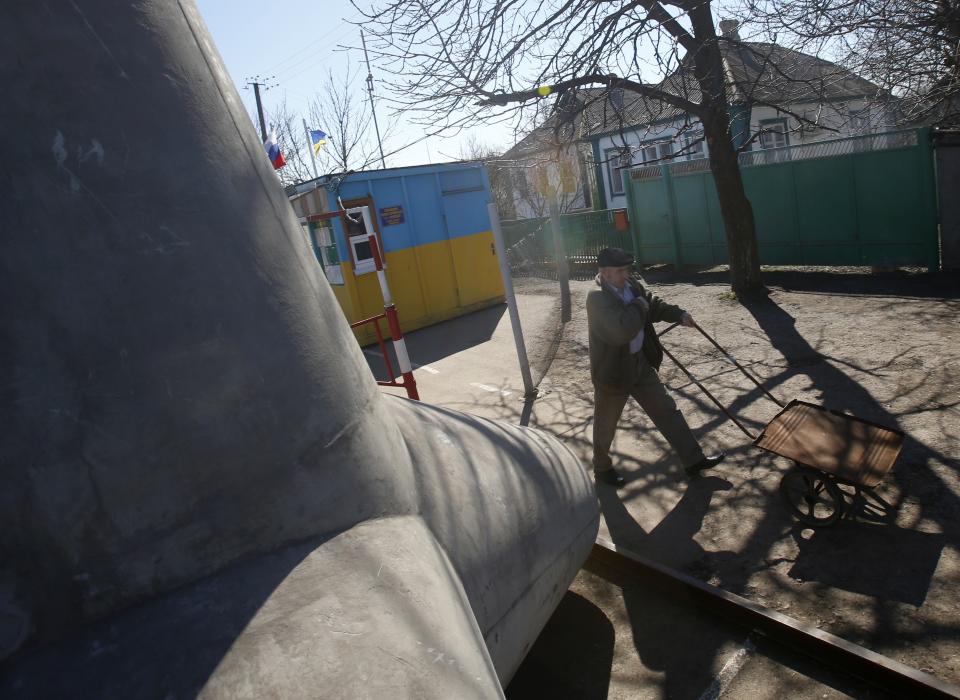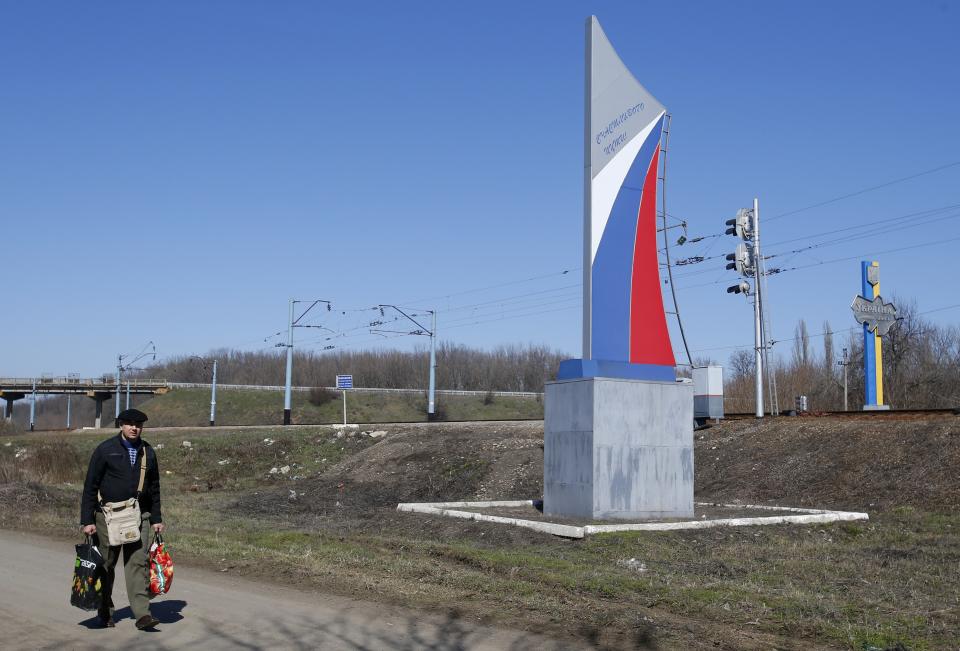Fear grips village divided between Russia, Ukraine
VYSELKI, Ukraine (AP) — The prospect of Russian troops marching into eastern Ukraine is accomplishing what a national border could not: dividing the villagers of Vyselki.
Ever since the 1991 breakup of the Soviet Union, when Vyselki was split between Ukraine and Russia, its residents have lived together peacefully, doing most of their shopping in one country and paying their electricity bills in another.
Then came political upheaval in Ukraine, the flight of its pro-Russian president, and the Russian annexation of the southern Ukrainian peninsula of Crimea.
Suddenly, Vyselki is divided.
The Ukrainian residents here worry that Russian troops might march across the border, while Russian villagers fear harassment from the pro-Western government in Kiev.
"I didn't believe that the Russians would come in, but after Crimea anything is possible," said Ukrainian farmer Andrei Mikhalev, 32, whose vegetable fields straddle both sides of the border. "I have something to lose! I certainly don't need any Russian tanks in my fields."
The Russians worry that Ukraine might make them get visas to cross the border. If residents are no longer able to travel freely from one side of the village to the other, their way of life would be upended.
"Visas would be a catastrophe," said Lidia Yevseyeva, 77, who lives on the Russian side of the village and regularly travels by bicycle to the Ukrainian side to visit her ailing 90-year-old sister.
The entire village gets its gas, water and electricity from Russia, so those on the Ukrainian side must cross the border to pay their utility bills. The school and post office also are in Russia, as well as the nearest grocery store.
But even Russian villagers do much of their shopping in Ukraine, where food and clothes are cheaper. The nearest big city, Donetsk, is in Ukraine, 90 kilometers (55 miles) away. The Russian city of Rostov-on-Don is 120 kilometers (75 miles) away.
Salaries and pensions tend to be higher on the Russian side. As a Russian citizen, retired doctor Nikolai Chernyshev gets a government pension worth $280, while his Ukrainian colleagues receive only about $190.
"The West only promises help while Russia is already helping us," Chernyshev said. "If Putin sends in troops I would only be happy, because we have to put a stop to the mess" in Kiev.
His Ukrainian neighbor, 53-year-old economist Galina Yefremenko, said nothing good can come from the threat of hostilities.
"I am a Ukrainian," she said. "How am I supposed to react to the division of my country?"

